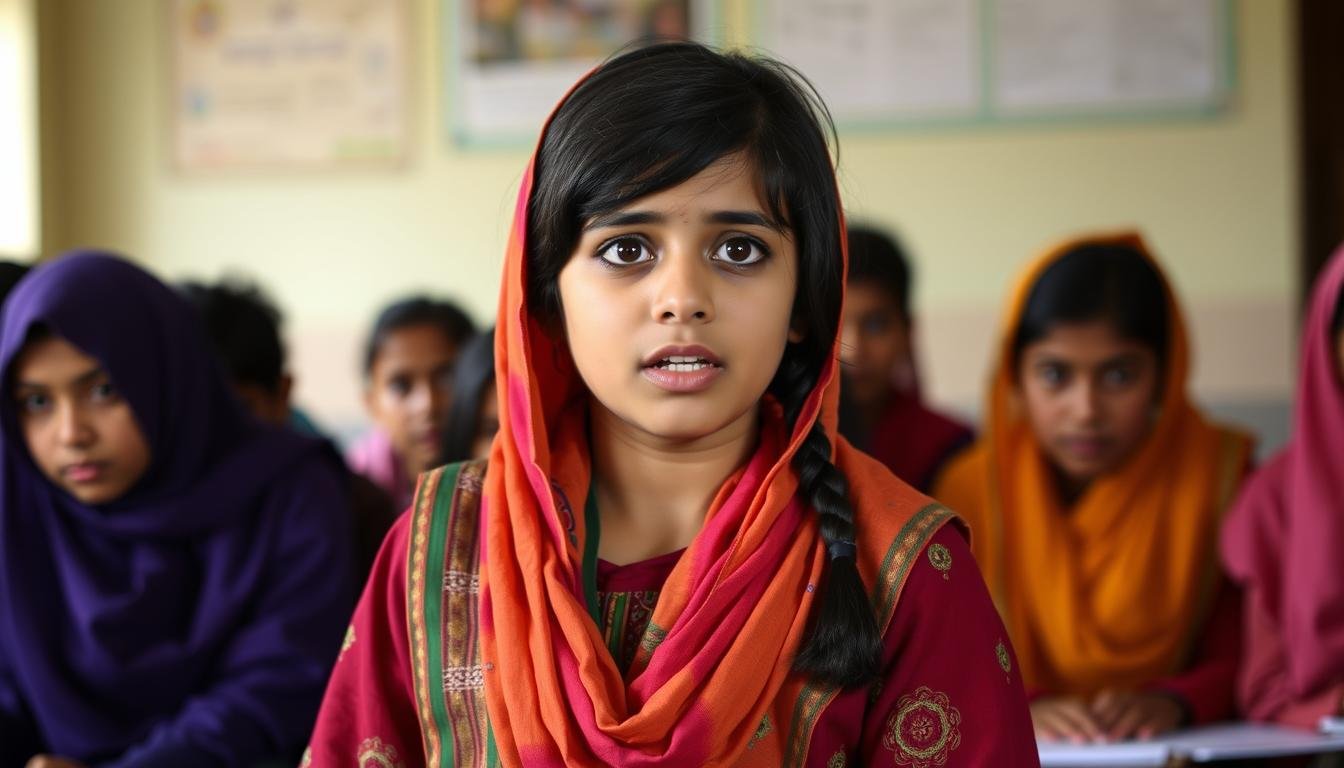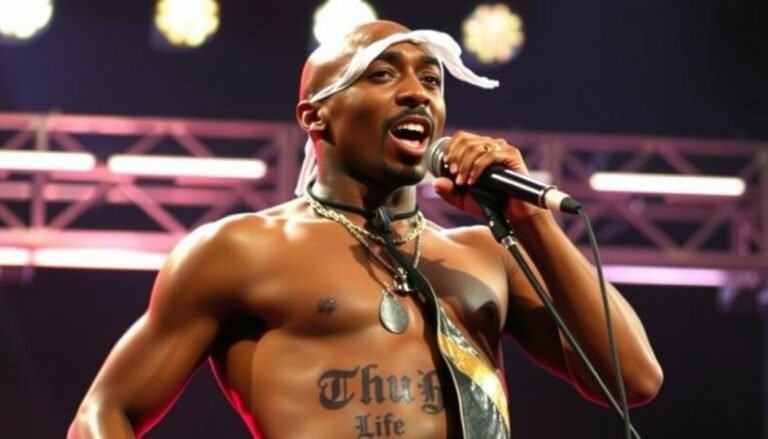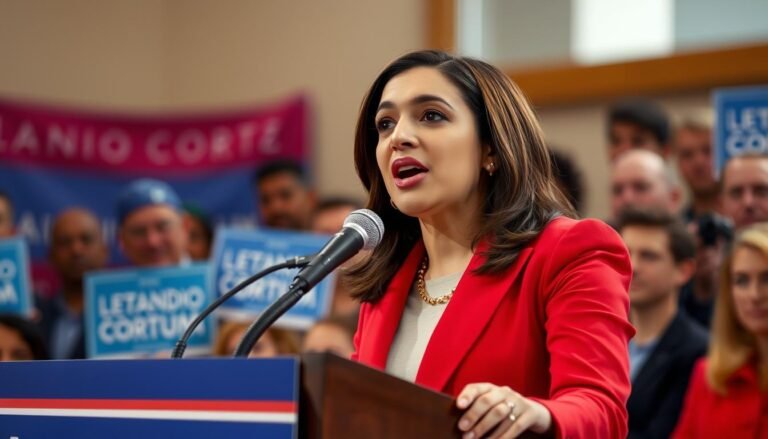Malala Yousafzai: The Story of Bulletproof Courage
In a world where standing up for what’s right can come at the highest cost, one young girl from Pakistan’s Swat Valley demonstrated what true bulletproof courage looks like. Malala Yousafzai’s journey from an ordinary schoolgirl to a global symbol of resilience began with a simple belief: every girl deserves an education. Her story transcends borders, cultures, and generations—showing us that courage isn’t the absence of fear, but the triumph over it.
A Voice Emerges from Swat Valley
Malala began her activism for girls’ education at just 11 years old
Born on July 12, 1997, in Mingora, Pakistan, Malala grew up in a region where the Taliban’s influence was rapidly expanding. Her father, Ziauddin Yousafzai, ran a school and instilled in her a deep appreciation for education. When the Taliban began threatening girls’ schools in 2007, most people remained silent—but Malala found her voice.
At just 11 years old, she began blogging anonymously for BBC Urdu under the pseudonym “Gul Makai,” documenting life under Taliban rule and their growing restrictions on girls’ education. Her words revealed both the fear and the determination that would come to define her bulletproof courage: “I had a terrible dream yesterday with military helicopters and the Taliban. I’m afraid.”
“I don’t want to be remembered as the girl who was shot. I want to be remembered as the girl who stood up.”
As her identity became known, Malala began speaking publicly about girls’ right to education. She appeared in a New York Times documentary and was nominated for the International Children’s Peace Prize. While her profile rose internationally, so did the threats against her life. Yet she continued to attend school and speak out, demonstrating that true courage isn’t fearlessness—it’s perseverance despite fear.
The Day That Changed Everything

Malala was airlifted to Queen Elizabeth Hospital in Birmingham for specialized treatment
On October 9, 2012, Malala’s life changed forever. As her school bus made its way through Swat Valley, Taliban gunmen stopped the vehicle and asked, “Who is Malala?” Before she could respond, they fired three bullets, one of which struck her in the head. The assassination attempt was meant to silence her—instead, it amplified her voice to a global audience.
The attack left Malala in critical condition. She was initially treated in Pakistan before being airlifted to Queen Elizabeth Hospital in Birmingham, England, for specialized treatment. For days, the world watched and waited as this young advocate fought for her life—her bulletproof courage now tested in the most literal sense.
The Taliban Attack: October 9, 2012
- Taliban gunmen stopped Malala’s school bus in Swat Valley
- She was shot in the head at point-blank range
- Two other girls were also injured in the attack
- The Taliban claimed responsibility, citing her advocacy for girls’ education
- The assassination attempt triggered global outrage and support
The Taliban’s attempt to eliminate Malala backfired spectacularly. The attack sparked international outrage and transformed her into a global symbol of resistance against extremism and educational inequality. As she underwent multiple surgeries and rehabilitation, messages of support poured in from world leaders, celebrities, and ordinary people inspired by her courage.
Rising from Adversity: A Global Voice Emerges
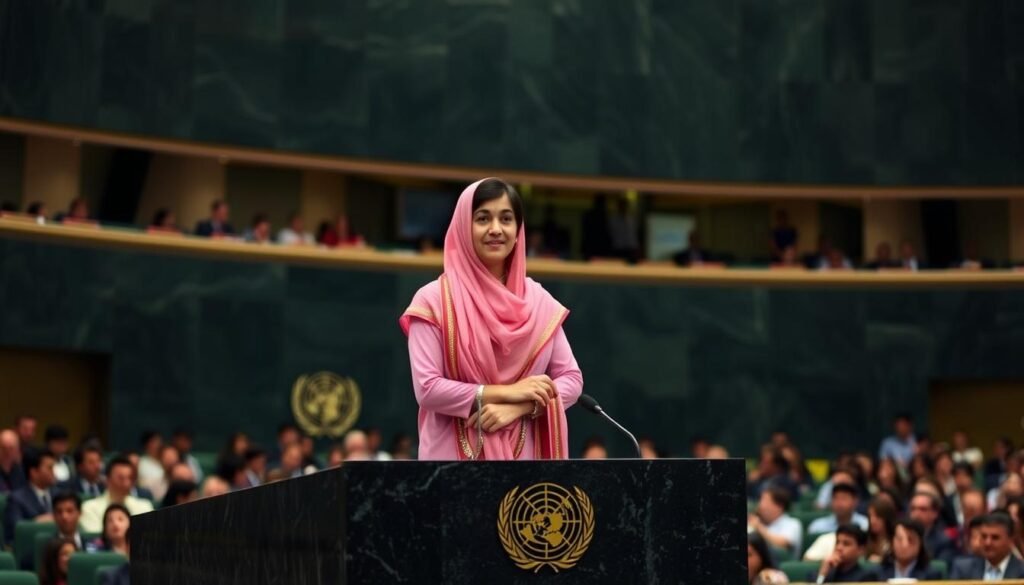
Malala addresses the United Nations Youth Assembly on her 16th birthday, July 12, 2013
Malala’s recovery was nothing short of miraculous. Despite the severity of her injuries, she not only survived but emerged with her resolve strengthened. On July 12, 2013—her 16th birthday—she stood before the United Nations Youth Assembly and delivered a speech that demonstrated her bulletproof courage had only grown stronger.
“The terrorists thought they would change my aims and stop my ambitions, but nothing changed in my life except this: weakness, fear, and hopelessness died. Strength, power, and courage were born.”
That day was declared “Malala Day” by the UN, but she dedicated it to all young people fighting for their rights: “Malala Day is not my day. Today is the day of every woman, every boy, and every girl who have raised their voice for their rights.”
In October 2014, at age 17, Malala became the youngest-ever Nobel Peace Prize laureate, sharing the award with Indian children’s rights activist Kailash Satyarthi. The Nobel Committee recognized her for her “struggle against the suppression of children and young people and for the right of all children to education.”
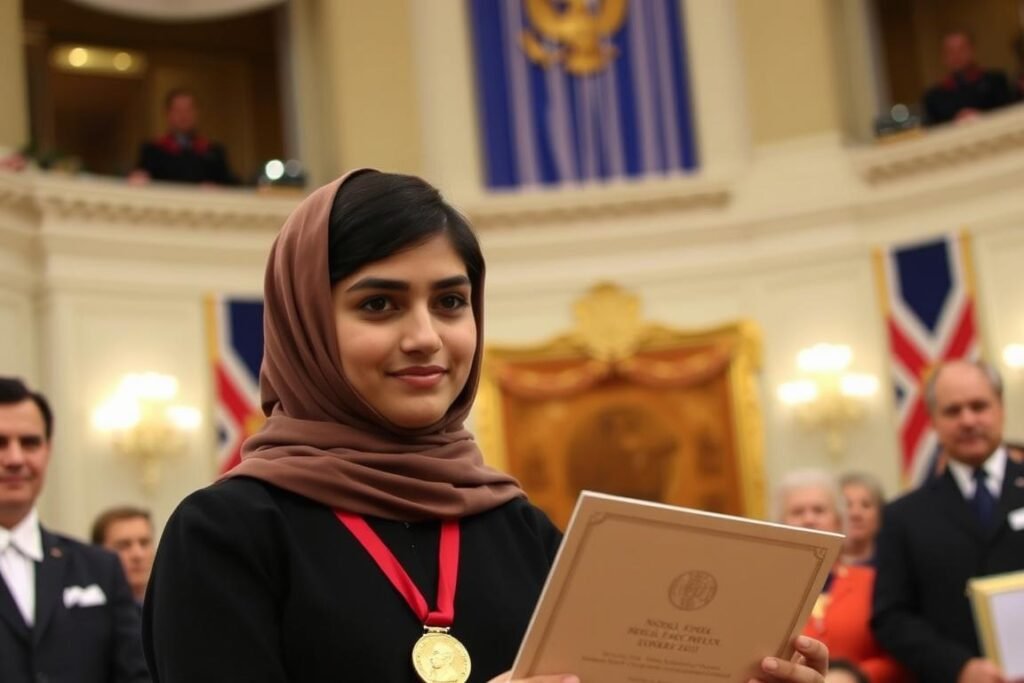
At 17, Malala became the youngest Nobel Peace Prize laureate in history
This recognition wasn’t just a personal achievement—it represented a powerful statement about the importance of education and the impact one person’s bulletproof courage can have on the world. As Malala accepted the prize, she brought girls from Syria, Nigeria, and Pakistan to the ceremony, emphasizing that she stood for all children denied education.
The Malala Fund: Turning Courage into Action
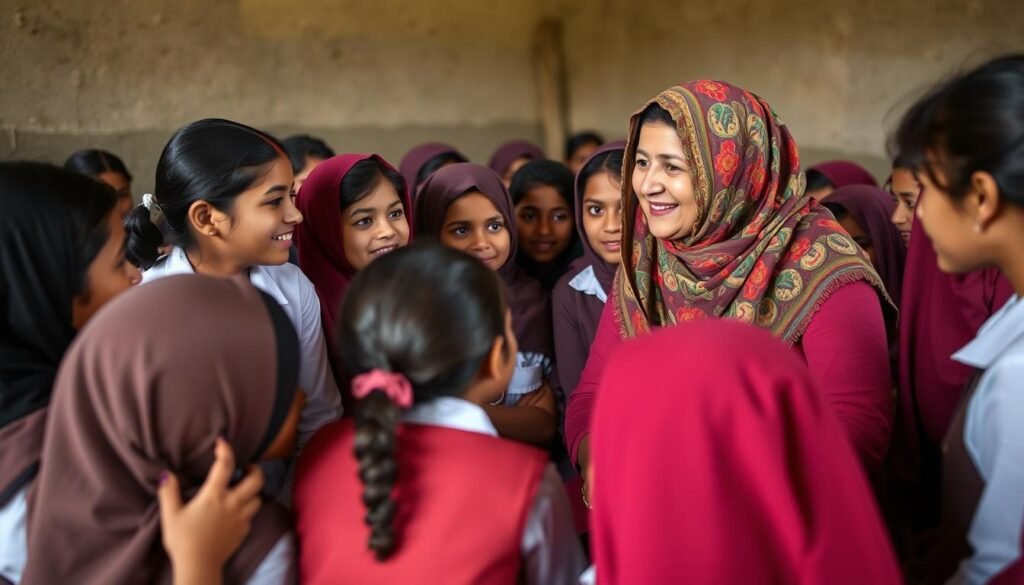
Through the Malala Fund, Malala works to bring education to girls in crisis regions
In 2013, Malala and her father founded the Malala Fund, an organization dedicated to giving every girl the opportunity to achieve the future she chooses. The fund invests in education advocates and activists who are challenging policies and practices that prevent girls from going to school in their communities.
The Malala Fund focuses on regions where girls face the greatest challenges to education, including Afghanistan, Brazil, India, Lebanon, Nigeria, Pakistan, and Turkey. Their programs address various barriers to education, from poverty and war to gender discrimination and traditional practices.
Key Focus Areas of the Malala Fund
- Supporting local education champions and activists
- Advocating for policy changes at governmental levels
- Amplifying girls’ voices through Malala’s platform
- Investing in innovative approaches to education
Impact of the Malala Fund
- Works in regions where 130+ million girls are out of school
- Supports over 30 education champions across 8 countries
- Advocates for $4.6 billion annually for girls’ education
- Reaches millions through awareness campaigns
Through her work with the Malala Fund, Malala has transformed her personal experience of bulletproof courage into a movement that empowers others. She continues to travel to refugee camps and areas affected by conflict or poverty, meeting with girls who face similar challenges to those she once did in Pakistan.
Support Girls’ Education Worldwide
Join Malala in her mission to see every girl in school, learning and leading without fear. Your support helps fund education projects in regions where girls are most likely to be out of school.
Beyond the Nobel: Continuing the Fight
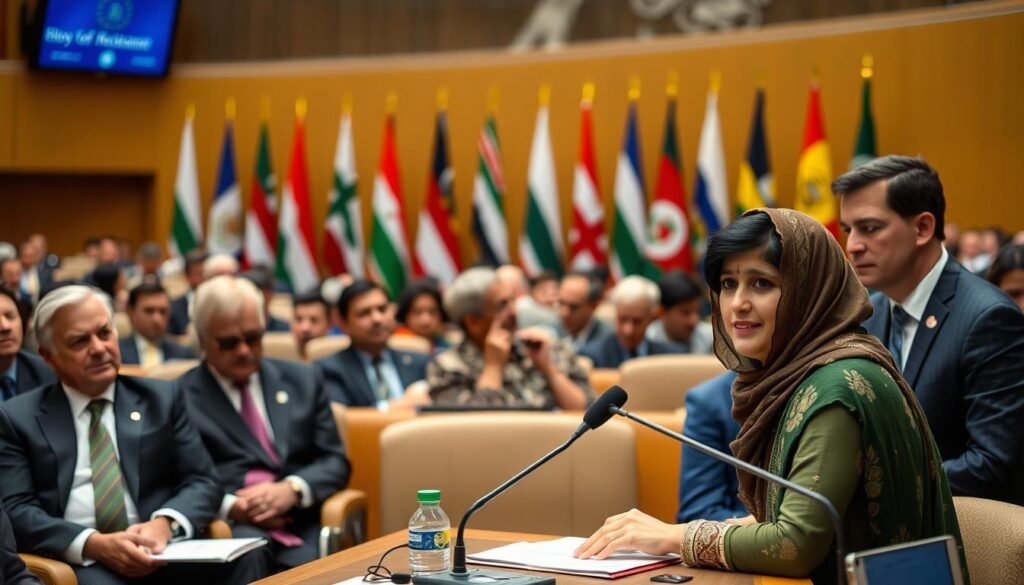
Malala has become a respected voice in global policy discussions on education
Malala’s advocacy didn’t end with the Nobel Prize. In fact, it marked just the beginning of a new chapter in her journey. While continuing her own education—graduating from Oxford University in 2020 with a degree in Philosophy, Politics, and Economics—she has maintained her role as a global advocate for girls’ education.
Her bulletproof courage continues to manifest in her willingness to speak truth to power. She has addressed the United Nations multiple times, met with world leaders including Barack Obama, Angela Merkel, and Justin Trudeau, and challenged them to fulfill their commitments to education funding and policy reform.
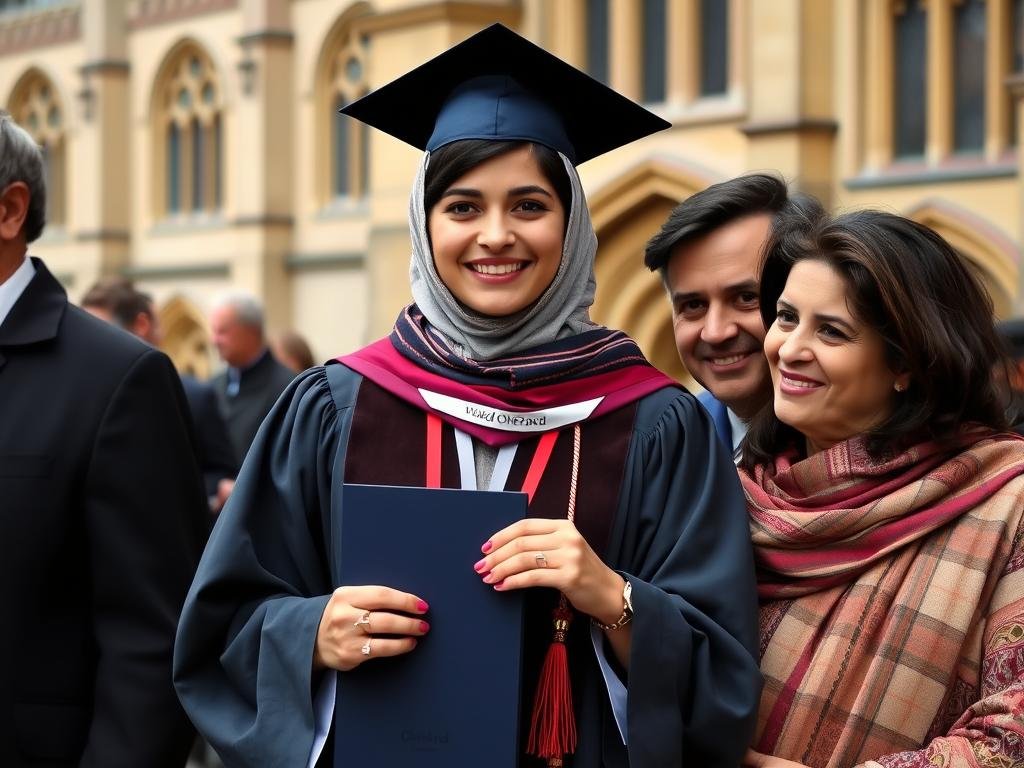
Malala graduated from Oxford University in 2020 with a degree in Philosophy, Politics, and Economics
In 2017, she was appointed as a UN Messenger of Peace, the highest honor given by the United Nations for an advocate. In her acceptance speech, she emphasized that education is not just a right but a pathway to peace: “Education is the best way to fight terrorism and extremism. It’s not just needed for individuals but for peace and development of the nation.”
“When the whole world is silent, even one voice becomes powerful.”
Malala’s advocacy extends beyond education to include refugee rights, gender equality, and climate justice—recognizing that these issues are interconnected in the fight for a more just world. Her approach demonstrates that bulletproof courage isn’t just about surviving adversity but about using that experience to create systemic change.
The Legacy of Bulletproof Courage
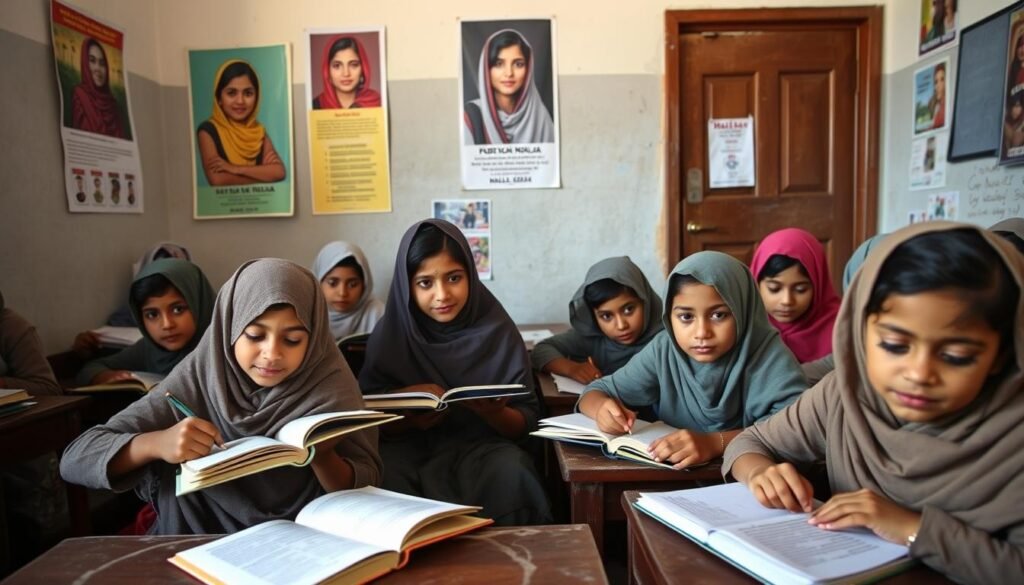
Malala’s courage has inspired educational initiatives for girls worldwide
Malala’s impact extends far beyond her personal achievements. Her story has inspired countless educational initiatives, policy changes, and individual acts of courage around the world. The “Malala Effect” has helped shift global attitudes about girls’ education and women’s rights.
In Pakistan, her home country, her influence is complex. While some view her with suspicion due to her international fame and Western support, many young Pakistani girls see her as a role model who proved that their voices matter. Applications to girls’ schools increased in some regions following her advocacy, despite continued threats from extremist groups.
How has Malala’s story changed global education policy?
Malala’s advocacy has helped place girls’ education at the center of international development agendas. Her work contributed to the inclusion of quality education as Goal 4 in the UN Sustainable Development Goals. Many countries have increased their education budgets and created specific initiatives for girls’ education following her campaigning efforts.
What makes Malala’s courage truly “bulletproof”?
Malala’s courage is considered “bulletproof” because it wasn’t destroyed by literal bullets. Instead of being silenced by violence, she emerged with an even stronger voice and greater determination. Her courage is also bulletproof in that it withstands criticism, cultural backlash, and continued threats, yet remains focused on her mission rather than personal gain or recognition.
Perhaps most significantly, Malala has changed the narrative around young people’s capacity to create change. By demonstrating bulletproof courage at such a young age, she has inspired a generation of youth activists who believe their voices matter and their actions can transform societies.
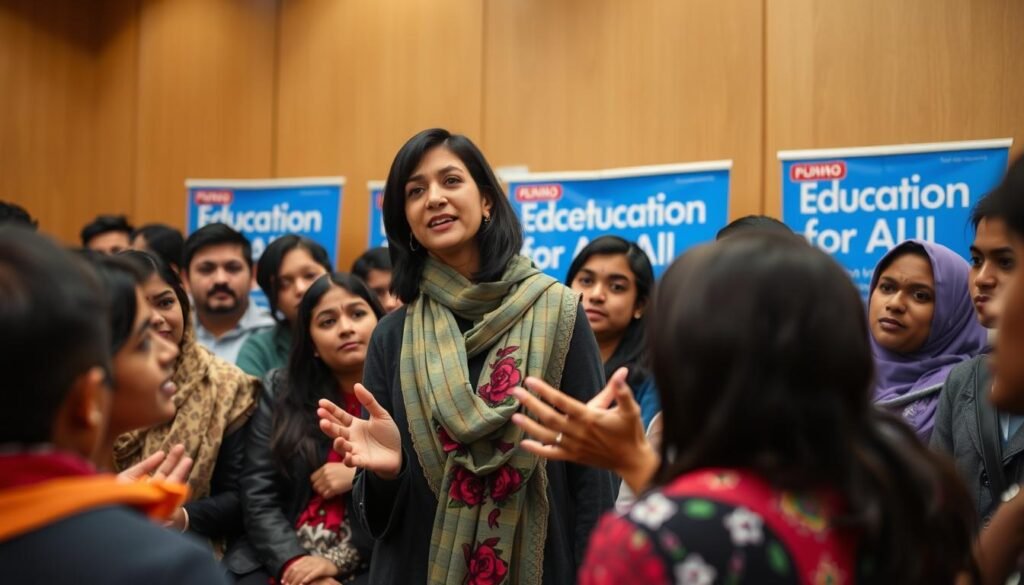
Malala continues to inspire and mentor young activists around the world
Today, Malala continues her work through the Malala Fund and other initiatives, embodying the principle that bulletproof courage isn’t a one-time act but a lifelong commitment to standing up for what’s right, even when—especially when—it’s difficult.
Embodying Bulletproof Courage in Our Own Lives
Malala Yousafzai’s journey from a schoolgirl in Swat Valley to a global icon of courage offers profound lessons for us all. Her story reminds us that bulletproof courage isn’t about being fearless—it’s about acknowledging fear and acting despite it. It’s about standing up for what’s right, even when the cost is high.
The true power of Malala’s example lies in its universality. While few of us will face the extreme dangers she encountered, we all face moments that call for courage—speaking truth to power, standing up against injustice, or simply being true to our convictions when it would be easier to remain silent.
“One child, one teacher, one book, one pen can change the world.”
As Malala continues her work, her legacy of bulletproof courage grows. She has transformed from a victim of violence to one of the world’s most influential advocates for peace and education. Her journey reminds us that courage, like education itself, has the power to transform not just individual lives but entire societies.
Continue Malala’s Mission
Learn more about how you can support girls’ education and embody bulletproof courage in your own community. Together, we can create a world where every girl can learn and lead.

